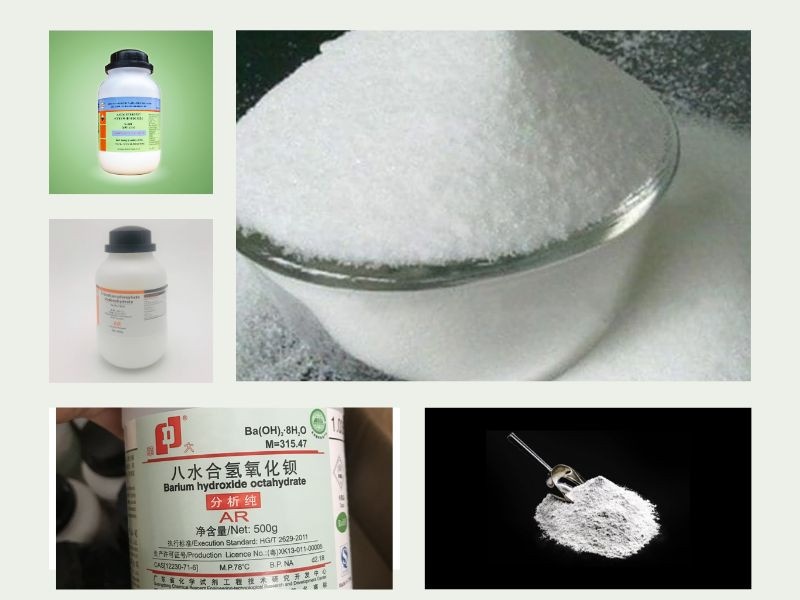Temporary hard water is hard water that can be treated by boiling or using a softener. Temporary hard water softeners work on the principle of combining with Ca2+ and Mg2+ ions in water, forming soluble compounds or sediment at the bottom. So what are temporary hard water softeners? In this article, let’s find out with Song Phung Environment the top 5 most effective and optimal temporary hard water softeners today.
What is temporary hard water?
Temporary hard water is water that contains high levels of calcium (Ca²⁺) and magnesium (Mg²⁺) ions, mainly in the form of bicarbonate salts such as Ca(HCO₃)₂ and Mg(HCO₃)₂. This type of water is often formed when water flows through limestone or dolomite deposits, dissolving the calcium and magnesium from them.
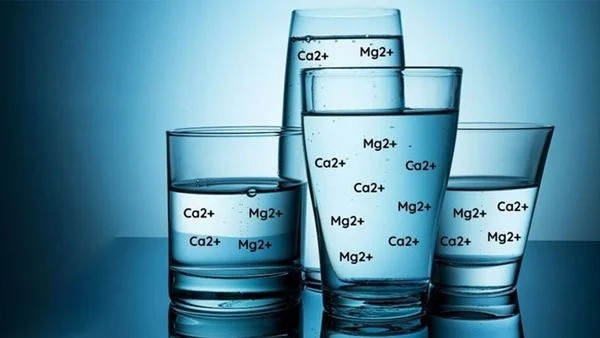
Harmful effects of temporary hard water
Using temporary hard water for a long time has a great impact on our health and life. Specifically:
For human health
Temporary hard water contains Bicarbonate salt, when we use water to cook drinking water or food, it will be converted into Carbonate salt. This type of salt is insoluble, accumulating for a long time can lead to kidney stones for users.
In addition, using hard water for daily activities also causes damage to the skin, hair, etc. If used for a long time, it can cause skin diseases,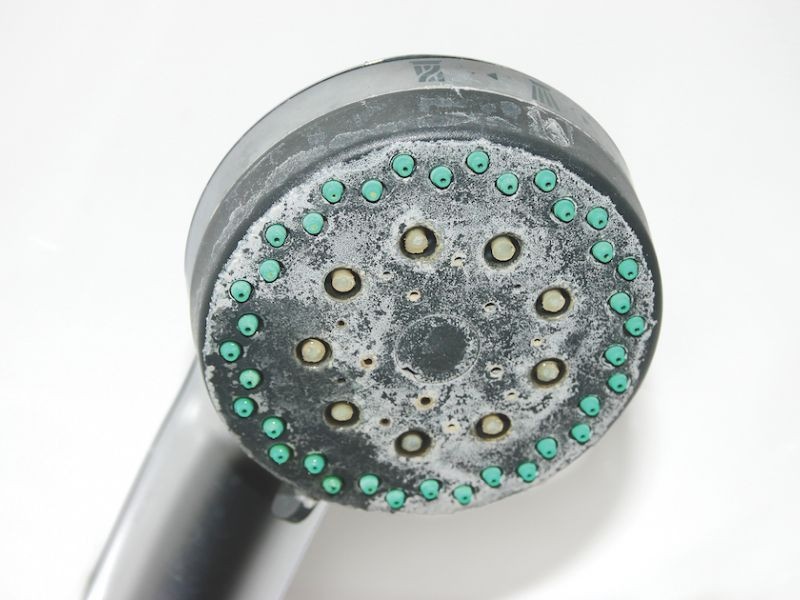
Harmful effects of temporary hard water
For daily life
In daily life, hard water also affects appliances such as aluminum pots, stainless steel pots, water heaters, etc. At that time, dirt in hard water will stick to the bottom and around the pot, making cleaning difficult. Not only that, they also cause appliances to quickly deteriorate due to corrosion.
Using hard water for cooking can change the flavor of food, causing the food to lose its natural deliciousness due to the presence of CaCO₃.
For industrial production activities
In industrial production such as food production, the use of hard water for production can affect the quality of the food. At that time, the food will change in flavor, color, texture and have an unpleasant smell or discoloration.
Signs of temporary hard water
You can easily identify whether your home water source is hard water or not through the following signs:
- When boiling water, you will see white residue settling at the bottom of the pot or sticking to the side of the kettle. This is because the bicarbonate salts of calcium and magnesium are decomposed into insoluble residue (CaCO₃, MgCO₃).
- When using water to wash clothes or bathe, soap creates less foam than usual.
- A white, slimy film appears on the surface of the water due to the reaction between Ca²⁺ and Mg²⁺ ions with soap.
- Water pipes, water heaters, and washing machines are covered with white residue over time, reducing their performance.
- Water heaters may become clogged or heat up more slowly due to residue.
- When drinking temporarily hard water, you may feel a slight astringent or slightly brackish taste, not as refreshing as soft water.
- After bathing with hard water, your skin may feel dry and itchy.
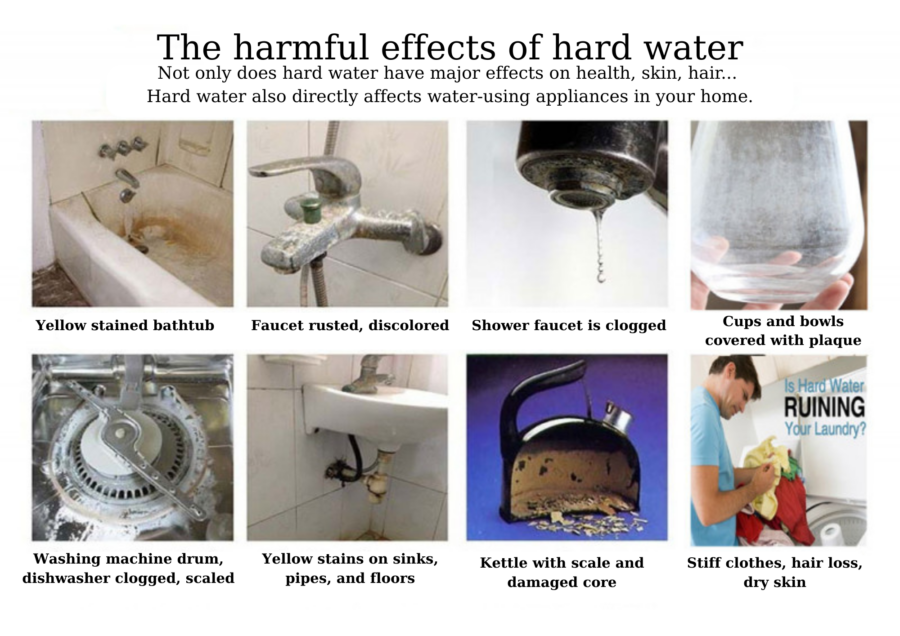
Or you can use: Water quality testing equipment to determine hard water
Temporary Hard Water Softeners
What substances soften temporary hard water? We will use the following 5 substances:
Slaked lime – Ca(OH)2
When slaked lime (Ca(OH)2) is dissolved in water, it will form a highly alkaline solution (high pH). This substance has the ability to precipitate calcium (Ca2+) and magnesium (Mg2+) ions in the form of CaCO3 and Mg(OH)2. These precipitates are insoluble in water and will settle to the bottom. Then, you will get the soft water above. Dirt will be removed by flocculation, settling and filtration to create a clean water source.
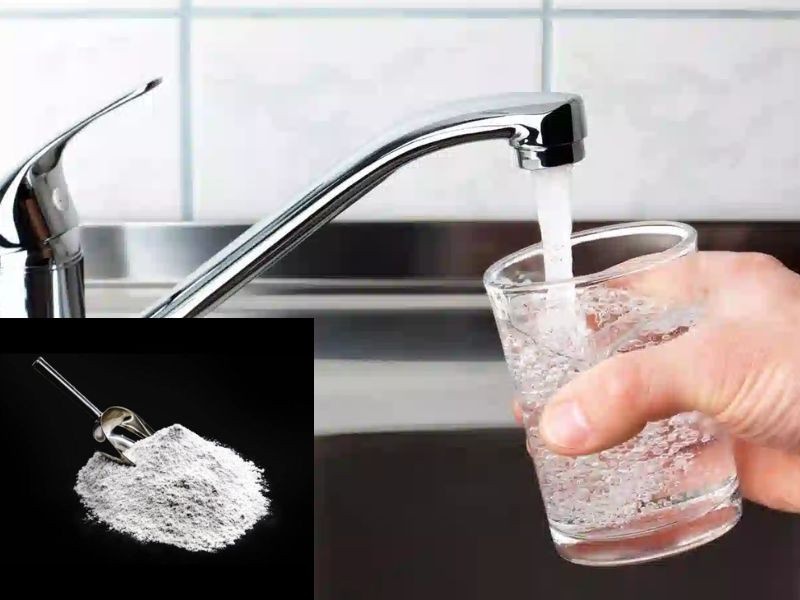
Soda (Na2CO3 salt)
The next temporary water softener you can use is soda. When soda is added to water, it reacts with Mg2+ and Ca2+ ions to form precipitates of CaCO3 and Mg(OH)2 that settle to the bottom. However, using soda to soften hard water can create Na+ ions, which are also harmful to health.
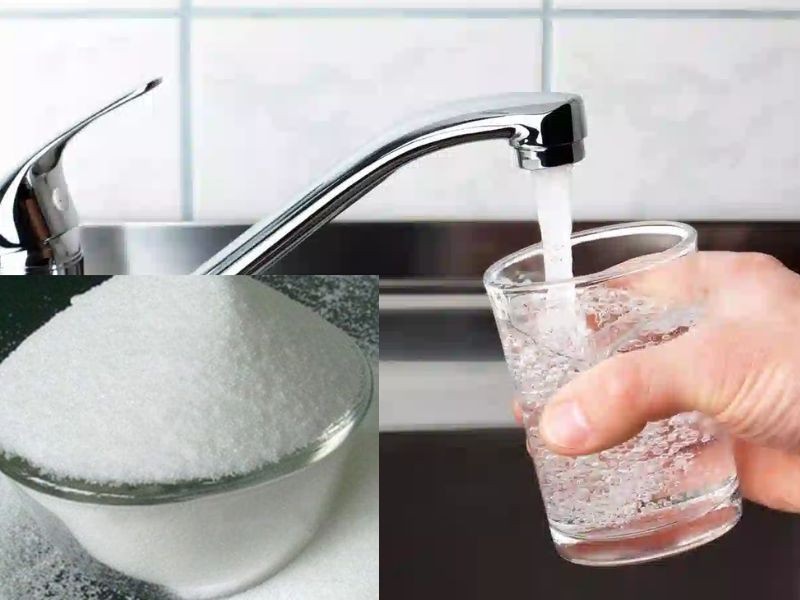
Barium Hydroxide Ba(OH)2
Next, we will use Ba(OH)2 in white powder form to treat temporary hard water. This solution will react with Ca2+ and Mg2+ ions in temporary hard water, creating insoluble precipitates of Ca(OH)2 and Mg(OH)2. These precipitates will settle to the bottom, helping to soften the water. You need to note to use high purity Ba(OH)2 to ensure health safety.
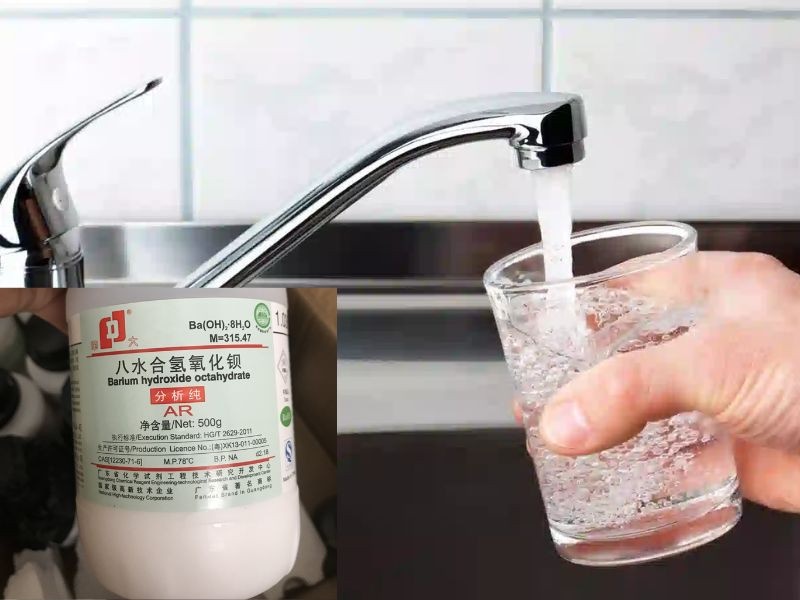
See method details: Heavy Metals in Water and the Risk of Bioaccumulation
Sodium Hydroxide NaOH
NaOH or sodium hydroxide can also react with Ca2+ and Mg2+ ions, creating Mg(OH)2 and Ca(OH)2 precipitates. After the reaction, these substances will settle down and soften hard water. NaOH can react immediately, so this method is quite easy to do. However, the water after treatment will have a salty taste, not suitable for people who eat bland foods.
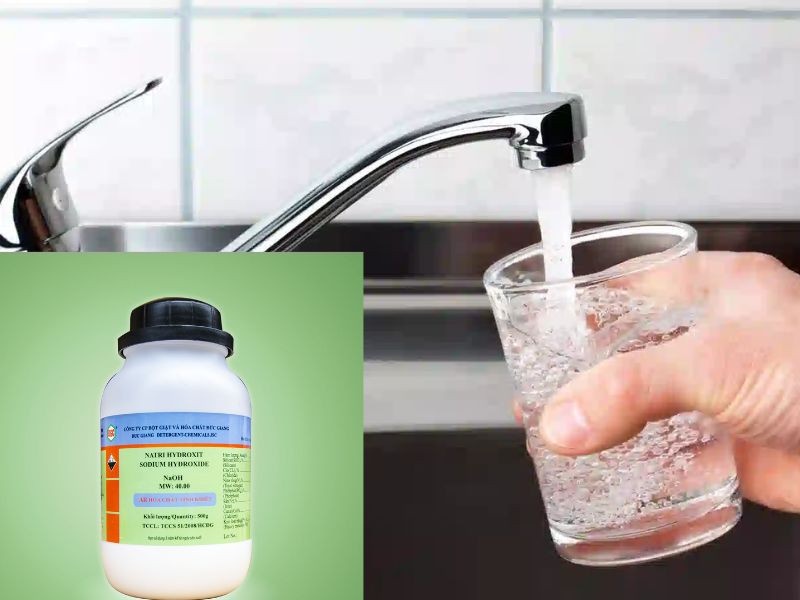
Sodium phosphate Na3PO4
Finally, Na3PO4 is also an effective substance for softening temporary hard water. The reaction between Na3PO4 and Ca2+, Mg2+ ions creates water-soluble precipitates (Mg3(PO4)2, Ca3(PO4)2). Therefore, it creates less scale than methods using slaked lime or Ba(OH)2.
Moreover, Na3PO4 does not contain sodium and does not affect water quality. This is suitable for those who are on a sodium-restricted diet. However, Na3PO4 is quite expensive compared to lime or soda.
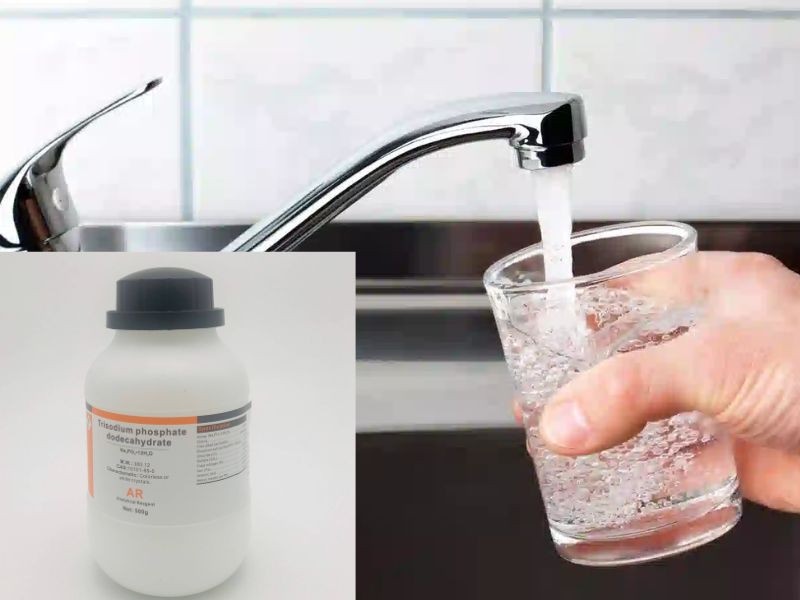
See more: Buyer’s Guide to UV Water Purifiers
Above are the 5 most effective and easy-to-use temporary hard water softeners. Using the right method not only helps remove mineral deposits, protect equipment but also provides safe water for daily life and production. Contact Song Phung Environment immediately for advice and installation of a professional water treatment system, helping you have clean and safe water every day!
You can also use:
TOP 12 Best and most Effective Hard Water Treatment Devices Today


